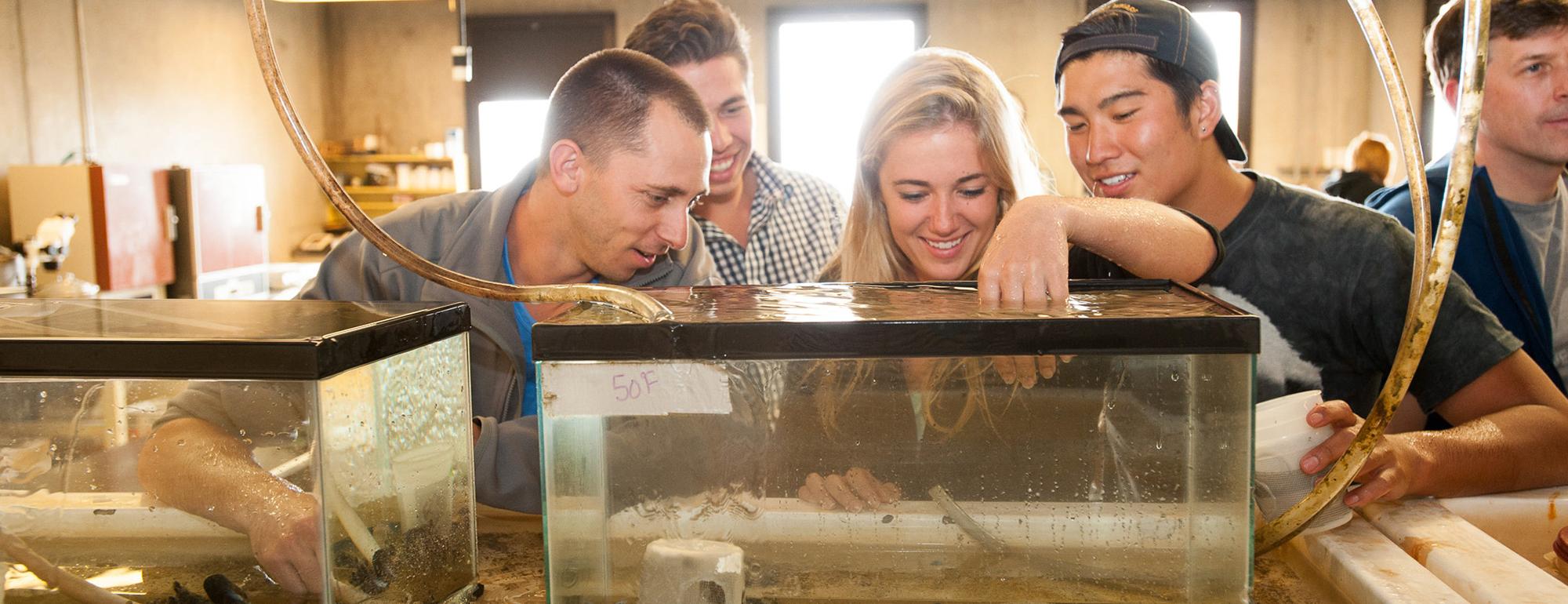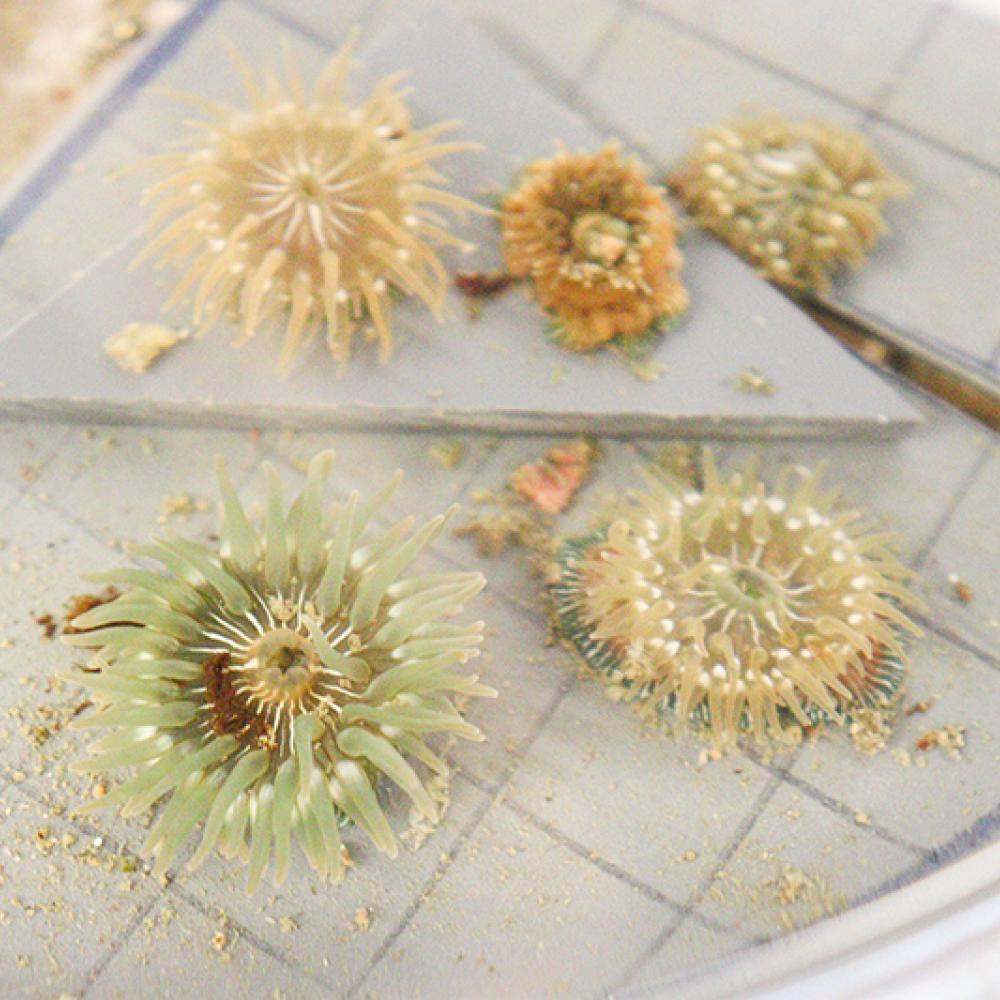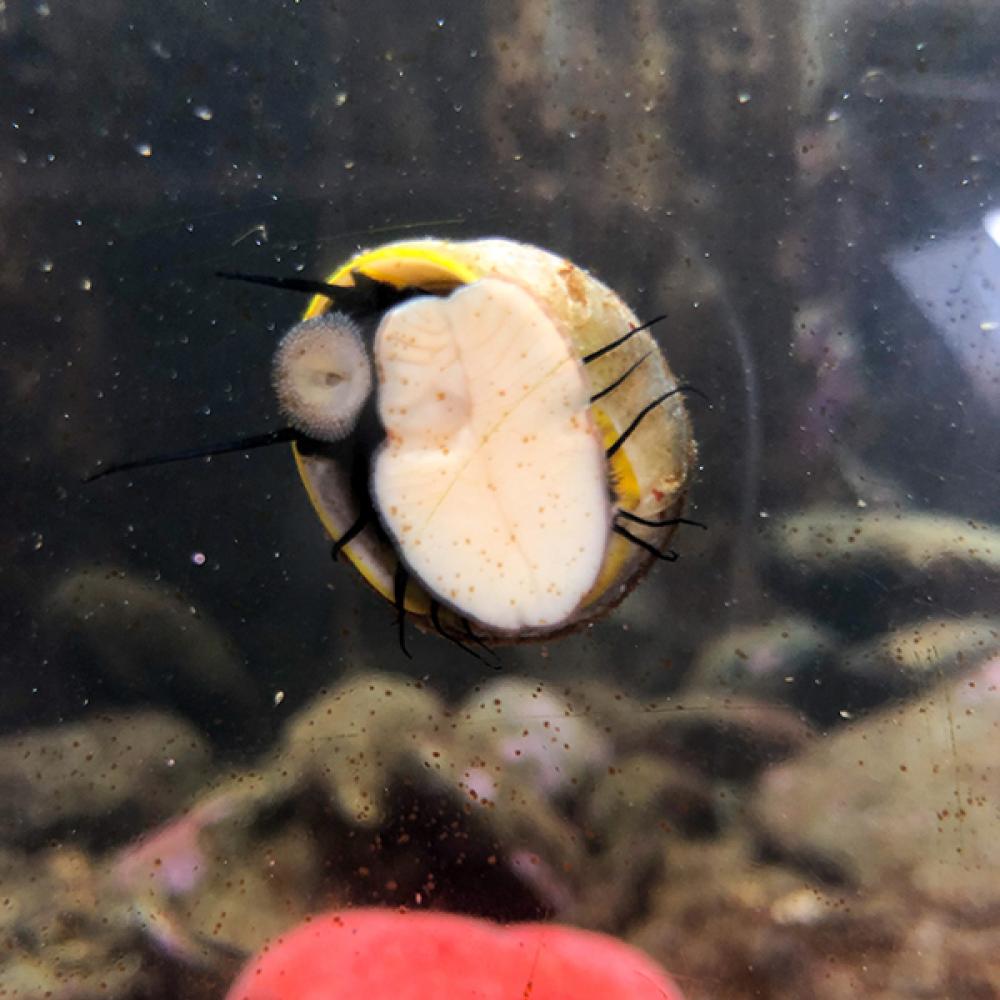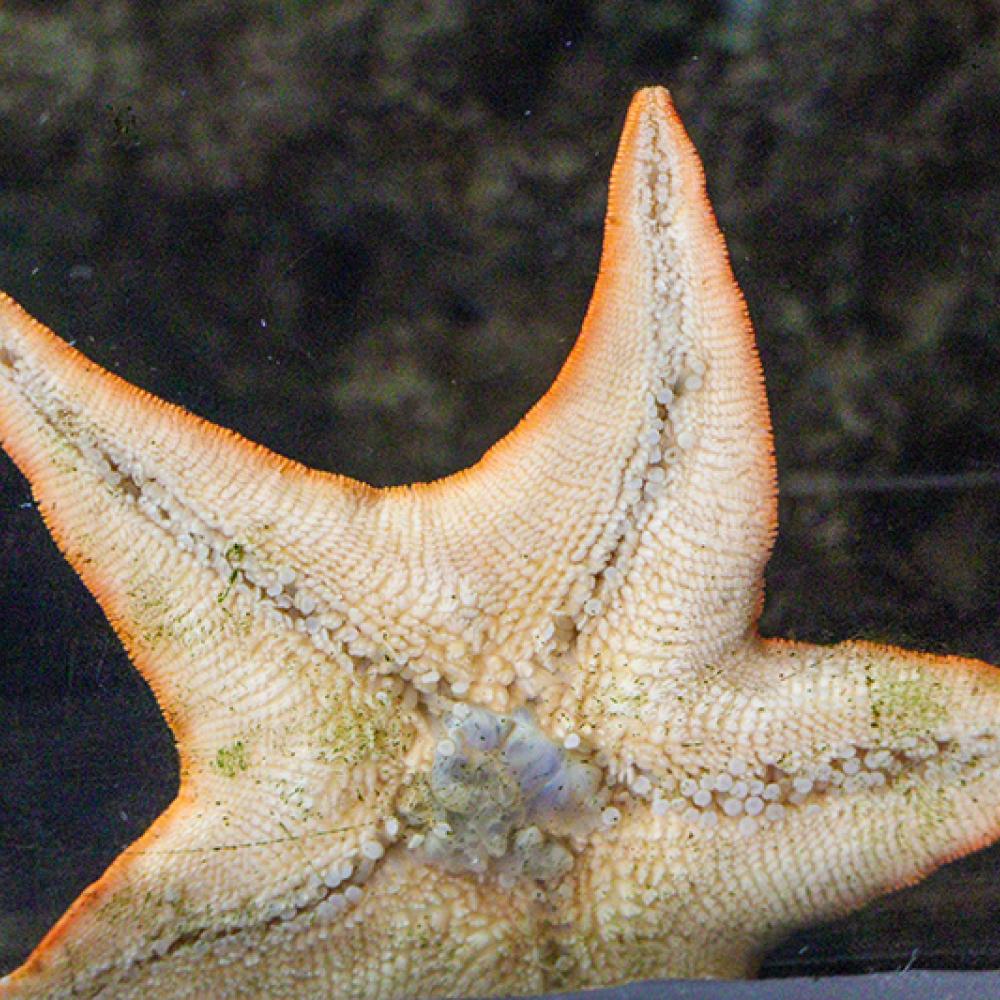About the Major
The Marine & Coastal Science Undergraduate Major was established in 2013 and is designed to build upon existing strengths present in three colleges at UC Davis: Letters & Sciences, Biological Sciences, and Agricultural & Environmental Sciences.
The major emphasizes the interdisciplinary nature of marine sciences by exposing students to the full spectrum of disciplines that constitute modern marine science and policy. We also emphasize hands-on experiences as interns or researchers, with many MCS students spending time in residence at Bodega Marine Laboratory.
Focus Areas in the Marine and Coastal Science Major
The MCS Major is a truly interdisciplinary course of study, drawing on the strengths of three colleges within UC Davis: Letters & Sciences, Biological Sciences, and Agricultural & Environmental Sciences.
The four focus areas in the major are:
- Coastal Environmental Processes
- Marine Ecology & Organismal Biology
- Marine Environmental Chemistry
- Oceans and the Earth System
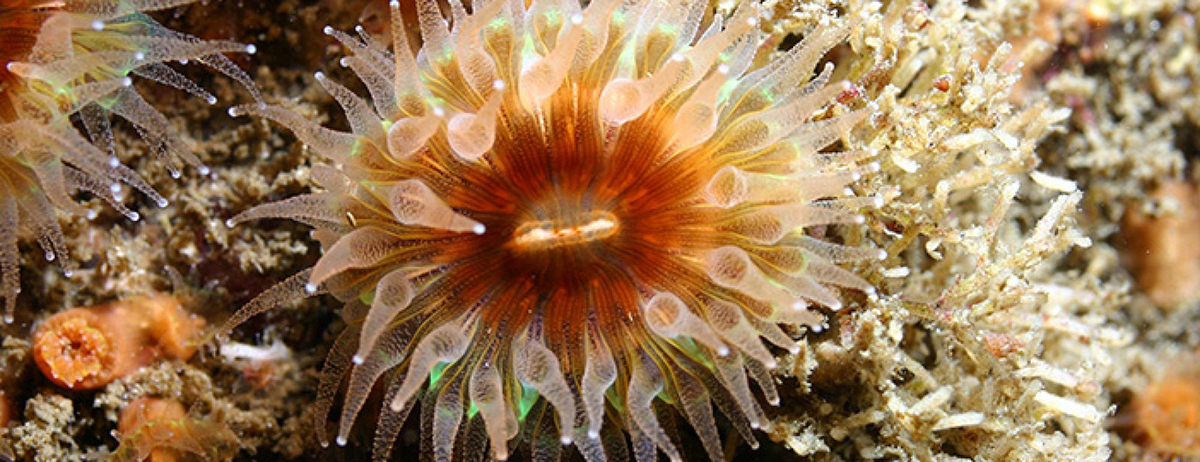
Ready to be a Marine and Coastal Science Major?
Visit the main Marine and Coastal Science Major page for information about advising, orientations, planning for your major, scholarships, internships, research experiences, and more.
Meet a Marine and Coastal Science Major:

"I came into this university as an undeclared, first-generation student with little idea of what my path was going to look like and what resources were available to me. When I stumbled into the Marine and Coastal Science major at the wrap of my freshman year, a fire was lit in my belly that kindled my passion for marine science, climate change, and the translation of science into policy (or lack thereof).
Not only was I readily welcomed by a supportive community who further inspired me, but the interdisciplinary nature of the major kept me on my toes and challenged me to think beyond my focus. The meaningful connections I formed with my professors in combination with my involvement with Bodega Marine Laboratory enriched my undergraduate experience and rendered it truly life-changing."
- Anyela Gonzalez Casillas
2020 Graduate, Marine and Coastal Science major with a focus in Oceans and the Earth System
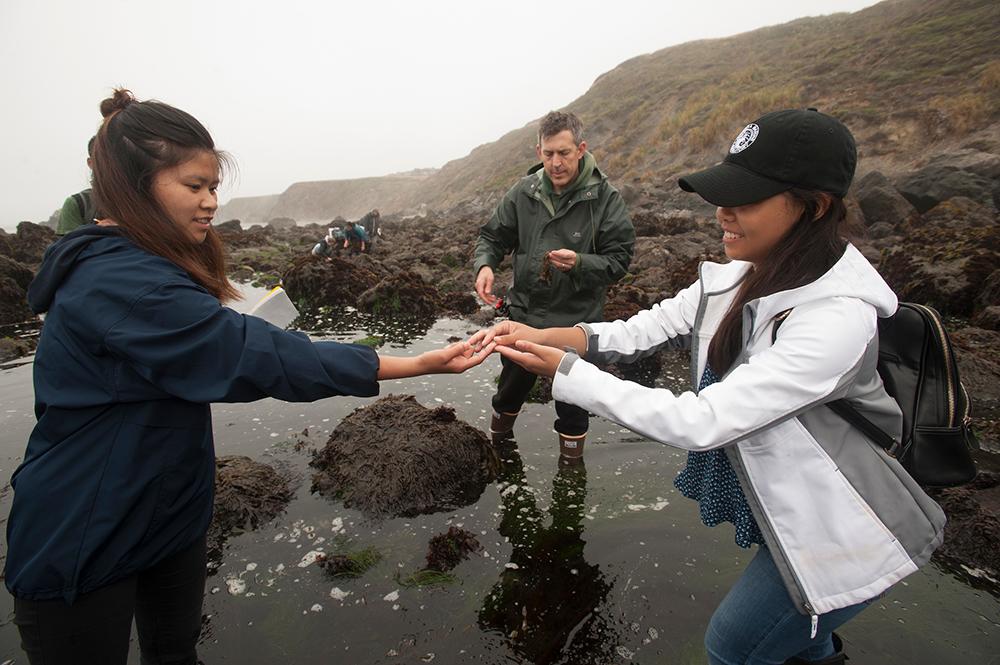
In the Field and on the Coast
This short video is about the BIS 124 - Coastal Marine Research course, a summer session class taught at Bodega Marine Laboratory, in which students gain practical, hands-on experience conducting their own research project on a topic of their choice related to EVE 114 (Experimental Invertebrate Biology). Explore more undergraduate research projects from Eric Sanford's BIS 124 course, including several winners of the UC Davis Research Rockstars Undergrad Slam Video Contest.
Where Do MCS Majors Go After Graduation?
"Next year I'll be working in the Johnson-Jeffres Lab at the Center for Watershed Science studying chinook salmon. After that, I hope to get my Master's studying the effects of anthropogenic noise on marine mammals."
- Alexandra Chu, Class of 2020
After graduation, I will be working with the Todgham lab studying the effects of stressors on the physiology of salmon. For the future, I hope to be able to work with projects that study the effects of climate change on marine organisms."
-Su Chung, Class of 2022
After graduating, I will be doing a summer internship at the Monterey Bay Aquarium Research Institute before starting my Ph.D. in the fall at the University of Southern California in the Marine Biology and Biological Oceanography program! I plan to mentor other first-generation college students like me and increase diversity in my field."
- Tina Nguyen, Class of 2020
After graduation, I will be working full-time as a vet assistant at a veterinary hospital and will also be applying to veterinary school."
- Michalea Lai, Class of 2022
"Currently, I’m looking forward to one more field season this summer in Mo’orea, where I’ll be aiding the Bay Lab with some coral research. Then I’m off to work for Eco Alpha as an environmental technician, and eventually I plan to return to school for a masters in genetics!"
-Camille Rumberger, Class of 2021
"I am super excited to say I will be spending a year with the Our World-Underwater Scholarship Society® representing the North American region where I will be traveling, diving, and gaining experiences in shark conservation, polar exploration, and coastal community outreach. The goal is to improve my skills as a diver, science communicator, and scientist before applying to grad schools."
- Genece Grisby, Class of 2023
"For the next year, I will be working as a research assistant at Friday Harbor Labs. I will be working on a project aiming to understand how to rear Pycnopodia helianthoides, the sunflower seastar, in captivity so that we can one day reintroduce them along the Pacific coast. I am so thrilled to continue learning about marine life."
-Michael Brito, Class of 2021
This fall, I am headed north to the Bering Sea to work as a fisheries observer for the Alaska groundfish program. I want to thank the Sanford lab and all of the incredible friends I made at BML who supported me every step of the way."
- Adri Penix, Class of 2023

